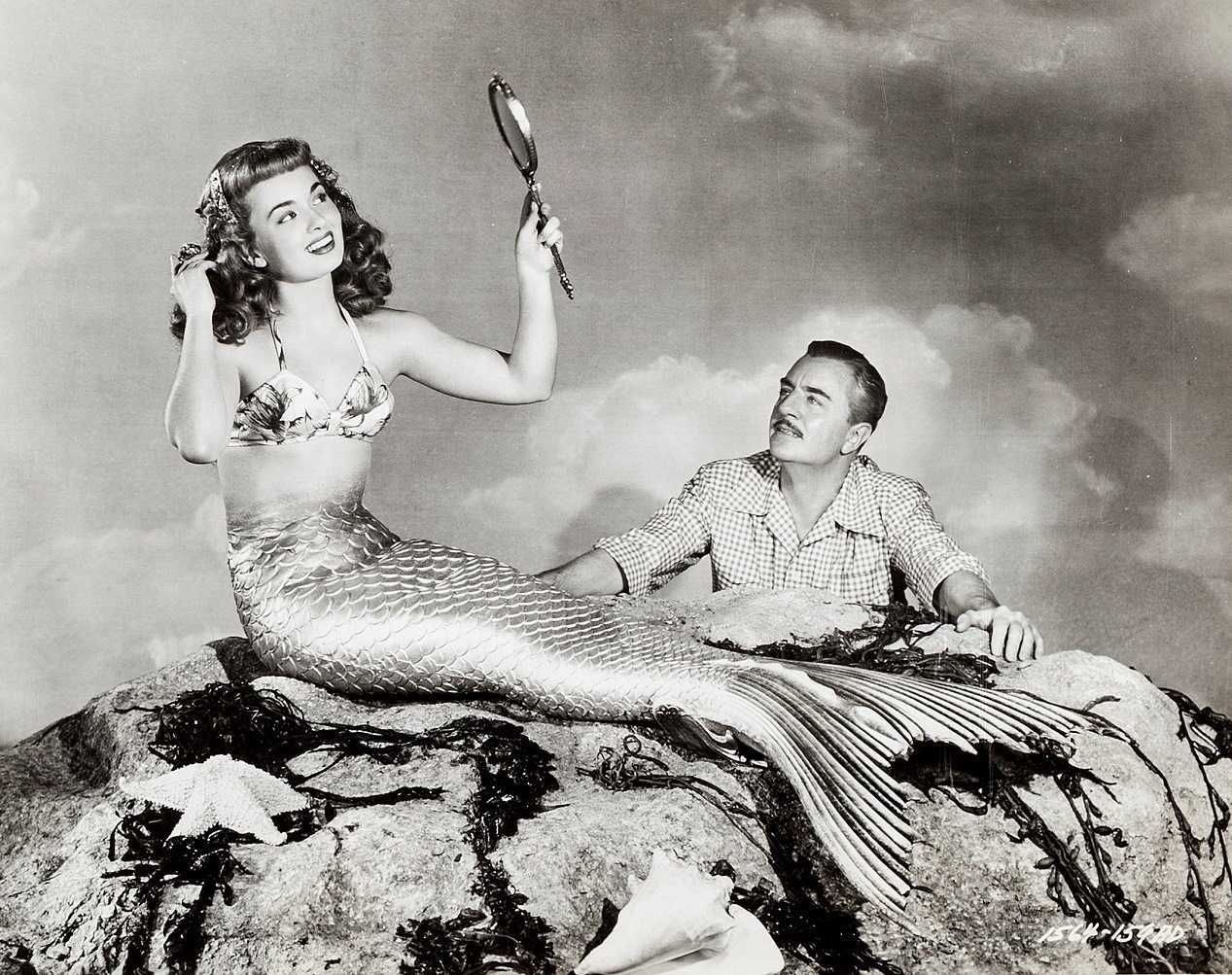USA. 1948.
Crew
Director – Irving Pichel, Screenplay/Producer – Nunnally Johnson, Based on the Novel Peabody’s Mermaid by Constance & Guy Jones, Photography (b&w) – Russell Metty, Music – Robert Emmett Bolan, Underwater Sequences – David S. Horsley, Makeup – Bud Westmore, Art Direction – Bernard Herzbrun & Boris Leven. Production Company – Inter-John Productions.
Cast
William Powell (Arthur Peabody), Ann Blyth (Lenore), Irene Hervey (Polly Peabody), Andrea King (Cathy Livingstone), Clinton Sundberg (Mike Fitzgerald), Art Smith (Doctor)
Plot
Middle-aged Arthur Peabody’s wife takes him to the doctor, concerned about his mental condition. Peabody tells the doctor his story. While on holiday at St Helen’s, he was out fishing when he hooked the tail of a mermaid. He brought her back to live in the pool at their villa, naming her Lenore. A series of problematic misunderstandings resulted when he tried to keep Lenore hidden from his wife, she thinking he was having an affair while the police thought Peabody had murdered someone when he tried to return Lenore to the sea.
Mr Peabody and the Mermaid was a likable mermaid fantasy. It came out the same year as the superior British effort Miranda (1948). Miranda was released in May 1948. By August of that same year, Hollywood responded with their own version Mr Peabody and the Mermaid that has a very similar plot in which a married man fishes up a mermaid and how her free-spirited ways cause havoc and much misunderstanding
Mr Peabody and the Mermaid has an amiable charm to it. The script moves at an uncramped pace and Irving Pichel directs with just the right degree of frothy lightness. The humour runs a spread of light British-American, infidelity, tee-totalling and mid-life crisis jokes.

All of the cast play well, particularly Ann Blyth who brings just the right amount of wide-eyed innocence to the role of the mermaid. There is a plaintive radiance to some of her scenes. William Powell brings a genially unperturbed everyman quality as Peabody and Andrea King steals several scenes as an invitingly sophisticated nightclub singer. Lightweight but genial.
Director Irving Pichel was best known as an actor – his most well known genre role was as the butler in Dracula’s Daughter (1936). Pichel also made more than 30 films as a director. His other directorial genre credits include:- co-directing the famous human hunting for sport film The Most Dangerous Game (1932), co-directing the H. Rider Haggard adaptation She (1935) about a lost city and an immortal queen, the angel fantasy Earthbound (1940), the pious The Miracle of the Bells (1948) about Catholic miracles, and George Pal’s The Great Rupert (1950) and classic science-fiction work Destination Moon (1950).
Trailer here


